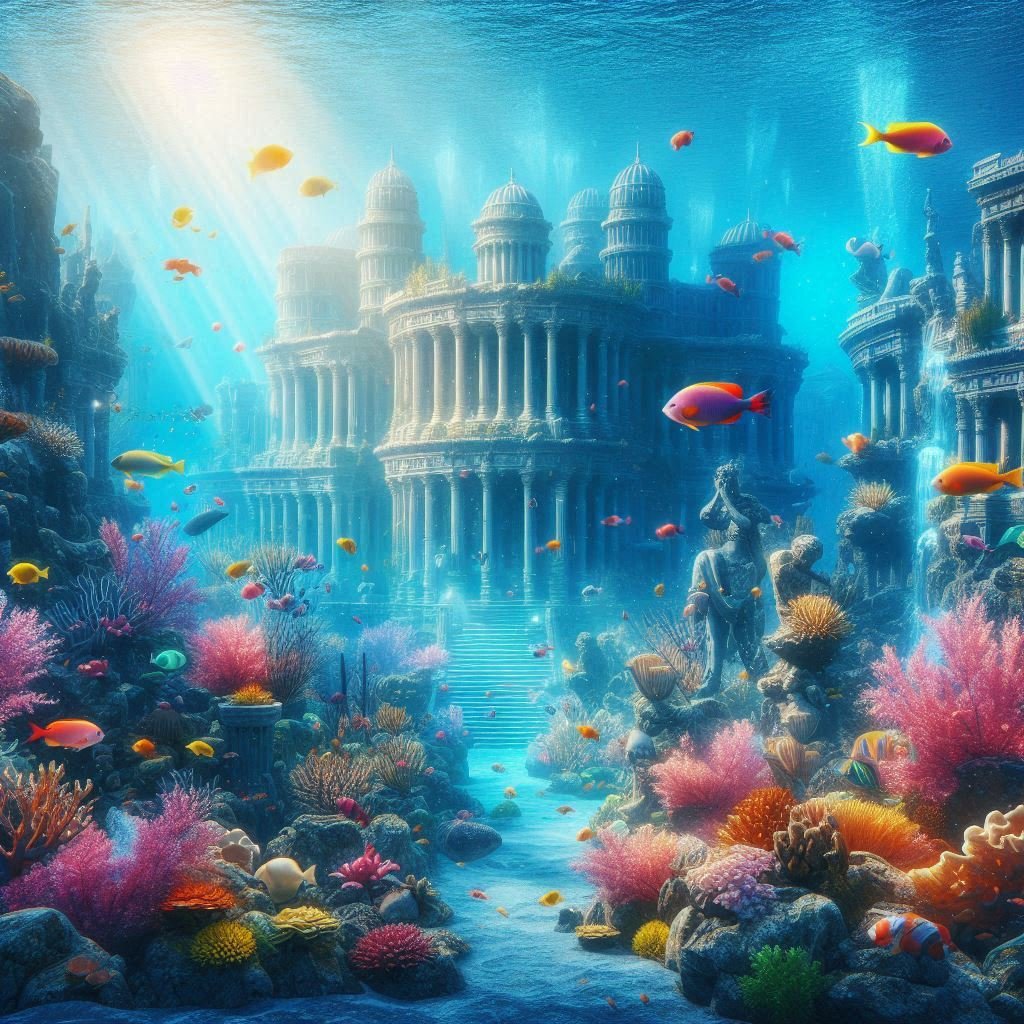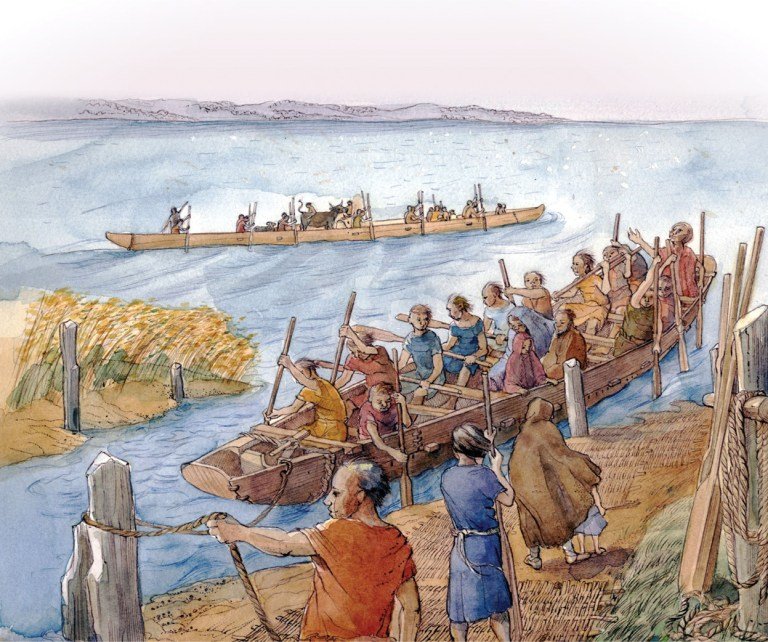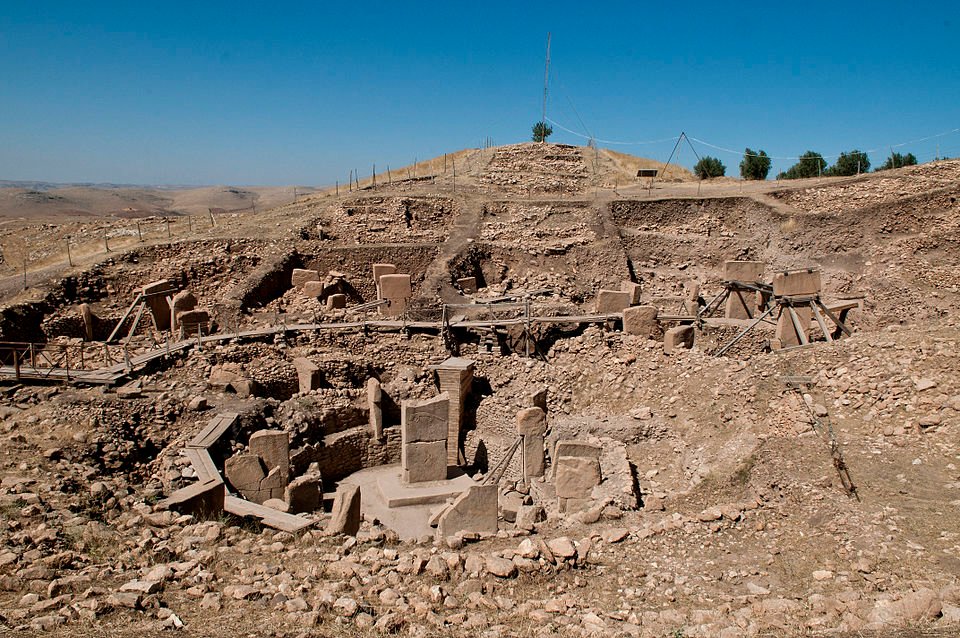The legend of Atlantis is one of humanity’s most enduring mysteries. A lost civilization, swallowed by the sea in a single cataclysmic night—this is a tale that has haunted imaginations for over two thousand years. But was Atlantis real? Was it an allegory, a misunderstanding, or a historical truth buried beneath millennia of myth? To separate fantasy from fact, we must journey back to the ancient world, explore the roots of the legend, and navigate through centuries of speculation, exploration, and controversy.
This is not just the story of a sunken city. It’s the story of how one idea captivated the world, inspiring philosophers, treasure hunters, scientists, and dreamers alike. The truth behind the Atlantis legend may be more surprising—and more human—than fiction.
Plato: The Philosopher and His Tale
The story of Atlantis begins with a man whose words still shape Western thought: the Greek philosopher Plato. Around 360 BCE, Plato wrote two dialogues—Timaeus and Critias—that introduced the world to Atlantis. He described a magnificent island nation, larger than Libya and Asia combined, located beyond the “Pillars of Heracles” (what we now call the Strait of Gibraltar). Atlantis, according to Plato, was a powerful empire that existed 9,000 years before his time.
Plato’s Atlantis was no ordinary kingdom. Its capital city gleamed with concentric rings of land and water, its architecture divine, and its military might formidable. But its people, once noble and virtuous, became greedy and corrupt. As punishment, the gods destroyed Atlantis in a single day and night of earthquakes and floods, submerging it beneath the sea.
Most scholars believe Plato invented the story as a cautionary parable about the dangers of pride and imperial ambition, particularly aimed at his fellow Athenians. After all, he was writing shortly after Athens’ defeat in the Peloponnesian War—a time of soul-searching and political instability. In this view, Atlantis wasn’t history, but a moral tale. Yet the vivid detail and precise geography of his account left just enough ambiguity to spark centuries of debate.
Ancient Reactions and Early Interpretations
Plato’s contemporaries were skeptical. His student Aristotle reportedly dismissed Atlantis with the quip, “He who invented it also destroyed it.” No ancient historian took the story as literal truth. Atlantis faded into obscurity, barely mentioned for over a millennium.
But during the Renaissance, interest in ancient texts surged. Scholars, newly equipped with printed editions of Plato’s works, rediscovered the legend and began to wonder: what if he hadn’t made it all up?
This renewed interest coincided with the Age of Exploration. As Europeans sailed the globe, discovering lost civilizations in the Americas and Asia, the idea of a forgotten superpower hidden beneath the waves no longer seemed so far-fetched. The line between myth and history blurred.
Atlantis in the Age of Discovery
The 15th and 16th centuries were fertile ground for Atlantis fever. When explorers stumbled upon vast cities and pyramids in the New World, some speculated that these were remnants of Atlantis. Spanish chroniclers even proposed that the Aztecs and Incas were descendants of Atlanteans. The island described by Plato, they argued, might not be a myth at all, but a misunderstood memory of the Americas.
In the 17th century, the scholar and statesman Francis Bacon added fuel to the fire with his utopian novel New Atlantis, imagining a technologically advanced society built on the ideals of reason and science. Atlantis had become more than a lost city—it was now a symbol of human potential.
At the same time, religious thinkers linked Atlantis to biblical tales of the Great Flood, connecting Plato’s tale to Noah’s Ark and the destruction of sinful civilizations. This spiritualized Atlantis, framing it as a fallen Eden or a testament to divine judgment.
The legend became a canvas onto which explorers, scientists, mystics, and theologians could project their hopes, fears, and theories. Atlantis was everywhere—because it could be anywhere.
The 19th-Century Obsession and the Rise of Pseudoscience
No era embraced the Atlantis myth quite like the 19th century. It was a time of rapid scientific progress—and rampant speculation. In 1882, American politician and amateur archaeologist Ignatius Donnelly published Atlantis: The Antediluvian World. The book was a sensation.
Donnelly claimed that Atlantis was the cradle of all civilization, influencing Egypt, Mesopotamia, India, and even Europe. He argued that ancient similarities in architecture, language, and myth were no coincidence—they were echoes of a forgotten master culture. His theory tied Atlantis to the biblical flood, to pyramid-building societies, and even to the lost tribes of Israel.
Though his ideas were largely dismissed by academics, they caught fire with the public. Donnelly’s work inspired a generation of writers, including Helena Blavatsky, who blended Atlantis with esoteric teachings and theosophy. Atlantis became a spiritual metaphor, a lost epoch of divine wisdom destroyed by hubris.
This fusion of archaeology, mysticism, and pseudoscience flourished in fringe circles. Atlantis was no longer just a sunken island—it was a vanished golden age, perhaps peopled by giants, aliens, or gods.
Searching for the Lost City: Modern Expeditions
In the 20th and 21st centuries, the search for Atlantis took on a more scientific tone. Researchers and adventurers proposed dozens of possible locations, each claiming to match Plato’s description.
One of the most enduring candidates is the island of Santorini (ancient Thera) in the Aegean Sea. Around 1600 BCE, a massive volcanic eruption destroyed much of the island and devastated the Minoan civilization on nearby Crete. The eruption caused earthquakes, tsunamis, and widespread chaos—eerily similar to Plato’s account. Many scholars believe that this disaster, passed down through oral tradition, may have inspired the Atlantis myth.
Others have pointed to the Caribbean, the Azores, and even Antarctica as possible sites. Satellite imagery, sonar scans, and deep-sea diving expeditions have all been employed to locate ruins beneath the ocean. So far, none have conclusively proven the existence of Plato’s Atlantis.
Perhaps the most high-profile attempt came in 2009, when Google Earth users discovered what appeared to be a grid pattern on the ocean floor near the Canary Islands. Excitement surged—but oceanographers quickly debunked it as the result of sonar imaging errors.
Still, the search continues. For some, Atlantis is a tantalizing puzzle. For others, it’s an obsession. Whether motivated by curiosity, fame, or faith, the dream of discovering Atlantis endures.
The Psychological Power of a Lost World
Why does Atlantis continue to fascinate us? Part of the appeal lies in its ambiguity. It is just plausible enough to invite investigation, yet just mysterious enough to resist definitive answers. It offers a canvas onto which we can project our ideals and anxieties: the dream of a perfect society, the fear of sudden annihilation, the allure of lost wisdom.
Atlantis is also a story of justice. It’s the tale of a great empire undone by its own moral decay. This resonates deeply with cultures across time—especially during periods of crisis or transition. It’s a mirror we hold to ourselves, reflecting both our hopes and our hubris.
And in a world where so much is known, where GPS and satellites map every corner of the earth, Atlantis represents the last great mystery. It whispers that there is still something unknown, something hidden, something waiting to be found.
Atlantis in Pop Culture: From Disney to Conspiracy Theories
In the modern world, Atlantis has become a fixture in popular culture. It appears in everything from comic books to video games, from Disney films to science fiction sagas. Often, it’s portrayed as a technologically advanced underwater utopia—or a city populated by ancient aliens. These fantastical versions bear little resemblance to Plato’s tale, but they demonstrate the myth’s enduring adaptability.
Atlantis has also found a home in conspiracy theories. Some believe it was a nuclear-powered society destroyed by its own technology. Others claim evidence of Atlantis has been deliberately suppressed by governments or secret organizations. These theories, while unsupported by evidence, speak to a broader cultural skepticism—an unease with official narratives and a yearning for hidden truths.
In the realm of fringe science and New Age spirituality, Atlantis is often linked to energy crystals, spiritual enlightenment, or lost extraterrestrial knowledge. Though far removed from Plato’s intentions, these interpretations show how myths evolve to reflect contemporary values.
Was Atlantis Ever Real?
So, was Atlantis real? The answer depends on what we mean by “real.” If we’re asking whether a vast, technologically advanced empire existed exactly as Plato described, the evidence is lacking. No archaeological finds have confirmed the existence of such a place.
But if we ask whether Plato based his story on real historical memories—of natural disasters, fallen empires, and cultural memory—the answer may be yes. Atlantis could be a mosaic of memories: the Minoan eruption, Egyptian flood myths, even memories of war between ancient civilizations. Plato may have woven these threads into a coherent narrative to serve a philosophical purpose.
In that sense, Atlantis is both real and unreal. It is a myth built on fragments of truth—a reflection of human history, imagination, and morality.
The Enduring Legacy of a Legend
Atlantis endures because it speaks to something timeless. It reminds us that greatness can be fleeting, that nature can humble even the most powerful, and that beneath our civilization’s veneer lies a deep hunger for connection with the unknown.
It is a legend that invites us to question, to explore, and to dream. Whether buried beneath the waves or rooted in our collective psyche, Atlantis remains a mirror to the soul of humanity—reflecting our fears, our aspirations, and our endless curiosity.
As long as we search for lost cities, for hidden truths, for answers just beyond the horizon, the legend of Atlantis will live on. And perhaps that is the most important truth of all—not that Atlantis was lost, but that we are still looking.






